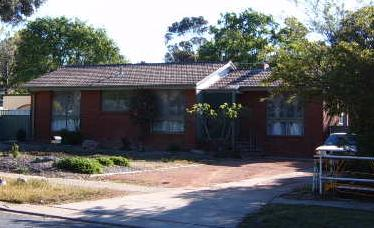Obstructing senator’s housing goals “unachievable”
Luke Williams
30 March 2023, 8:20 PM
 Image: Canva
Image: CanvaA leading housing policy advocate says the Greens and other Senator’s demands for housing - as they look to block the Albanese Government’s housing bill - are “unachievable” in the short term.
Dr. Michael Fotheringham from the Australian Housing Research Institute says that successive Coalition Governments have failed to invest in affordable housing leaving a problem that cannot be solved in the short term.
“This is not a problem which is going to be fixed in the next five years,” Dr. Fotheringham told the Western Plains App “The Labor Government is acting appropriately and picking up its responsibility to create more affordable housing with this bill”.
The Housing Future Fund will invest $10 billion in the stock market, and use the investment returns to build 30,000 new affordable houses over the next five years.
However, the Government’s bill looks to be rejected by the Senate - with the Greens and cross-benchers calling on the Government to inject direct funding into housing and include a raft of tenants in the legislation.
"It doesn't even guarantee that we would spend $500 million a year," Greens housing spokesperson Max Chandler-Mather said.
"The plan as it stands is getting $10 billion and gambling it on the stock market via the future fund ... the problem is last year the future fund lost 1.2 percent, so they would have lost 120 million dollars.
"Our point is for the millions of people in this country who need an affordable home, for the hundreds of thousands on the wait list for social housing; their lives shouldn't be dependent on whether or not a gamble on the stock market goes well - imagine doing that for schools or hospitals?" he said,
The Greens have called for at least $5 billion a year to be injected into housing and say that is a fair amount, noting the National Housing Finance Investment Corporation's recommendation for at least $15 billion in social and affordable housing investment each year.
In a dissenting report in the Senate committee member Senator David Pocock called for the fund to be doubled to $20bn and the $500m limit on disbursements from the bill to be eliminated.

Image: Wikipedia.
Jacqui Lambie, whose party has two crucial Senate votes, has said they support the bill but are still in negotiations with the government to modify it.
Prime Minister Anthony Albanese said that over the first five years, the fund would build 20,000 social housing properties, with 4,000 of those to be allocated for women and children fleeing domestic violence, and for older women on low incomes at risk of homelessness.
Another 10,000 affordable housing properties would be made available for frontline workers.
The estimated demand say industry and community groups is fpr around 650,000 social and affordable homes.
However, Dr. Fotherington said there wasn’t the labor or materials available - let alone funding - to meet this demand.
“The 30,000 homes is an ambitious target,” he told the Western Plains App “In New Zealand, the Labor Government said they were going to build 100,000 homes and after several years they built less than 2,000. What the Government has set is realistic, but it will also be a stretch to reach that amount. Aiming for higher when there have been successive Federal Governments that have had an ideological opposition to affordable housing, is just not manageable at this point”.
Dr. Fotherington also said whilst he agreed that tenants' rights should be greater regulated at the federal level, that including it in a housing future fund was “making the bill too many things at once”.
“I understand what these Senators are doing is essentially a negotiation tactic,” he said, “As a result, we may well see compromise and more money put on that table, but the New Zealand example shows what happens if we aim too high and over-promise on affordable housing”.




